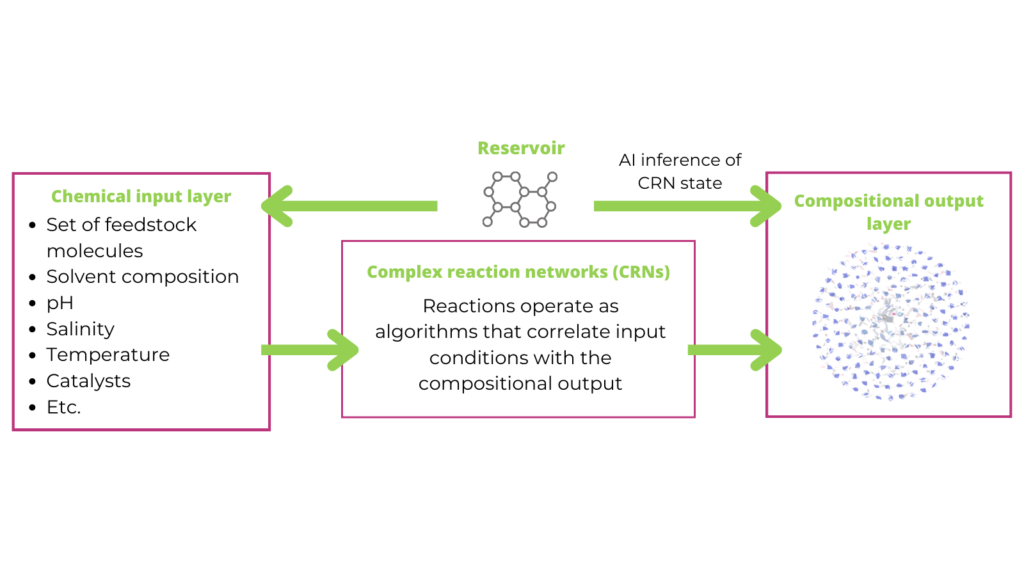Research & Innovation
The brain is the world’s most amazing computer and it runs entirely on chemical reactions. The vision of CORENET is to construct brain-mimicking computing devices that utilise networks of chemical reactions as molecular information processing systems. The consortium will implement RESERVOIR COMPUTING (RC) on microfluidic chips using CHEMICAL REACTION NETWORKS (CRNs) that convert input feedstock molecules and environmental conditions into a pattern of product molecules.
Systems chemistry
The construction of chemical networks with life-like features to emulate the computing capacity of living cells would be impossible without the synergistic involvement of systems chemistry, reaction networks and cheminformatics. UAM's research will focus on SYSTEMS CHEMISTRY, bringing expertise in:
Metabolomics
Part of CORENET's research will focus on the use of advanced analytical techniques (such as HPLC, GC and mass spectrometry) to separate, identify and quantify molecular species in the produced COMPLEX REACTION NETWORKS (CRN). The METABOLOMICS research in CORENET by CSIC and SDU will focus on:
- Organic synthesis of biohybrid systems.
- Complex replication networks.
- Confinement of the above for the development of CRNs and their out-of-equilibrium control.
- Metabolomic analyses of complex chemical mixtures.
- Statistical processing of big data for identification and quantification of mixture components.
- New analytical methods and software for data processing, identification and quantification of compounds.
Microfluidics
SRU has recently discovered that the formose reaction, a network of six basic reactions acting recurrently on a small number of input molecules, has the prerequisites for RESERVOIR COMPUTING (RC). CORENET's focus on MICROFLUIDICS will include:
Artificial Intelligence
ARTIFICIAL INTELLIGENCE (AI) models will be used to understand and utilize the dynamic complexity of CRNs. IBM will use various AI tools for linking the digital world with wet-chemistry systems. CORENET's focus on AI will include:
- Development and use of microfluidic reactors and enzymatic reaction networks.
- Creation and use of controllable microdroplet and hydrogel compartments.
- Use of a variety of product analytical techniques, including chromatography and mass spectrometry
- Automated operation of reactions
- AI-based mapping and classification.
- Mimicking CRNs by Artificial Neural networks.
- Image recognition based on reservoir computing with CRNs as reservoirs.





